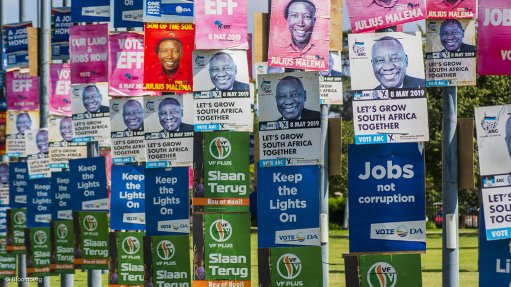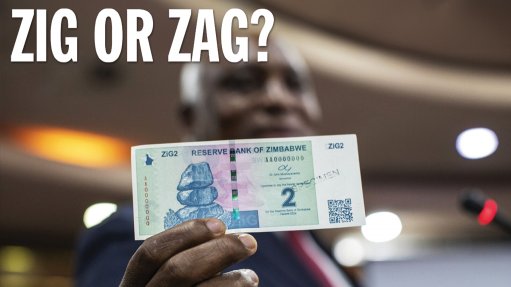Energy efficient charging of electric vehicles successfully piloted at PE varsity

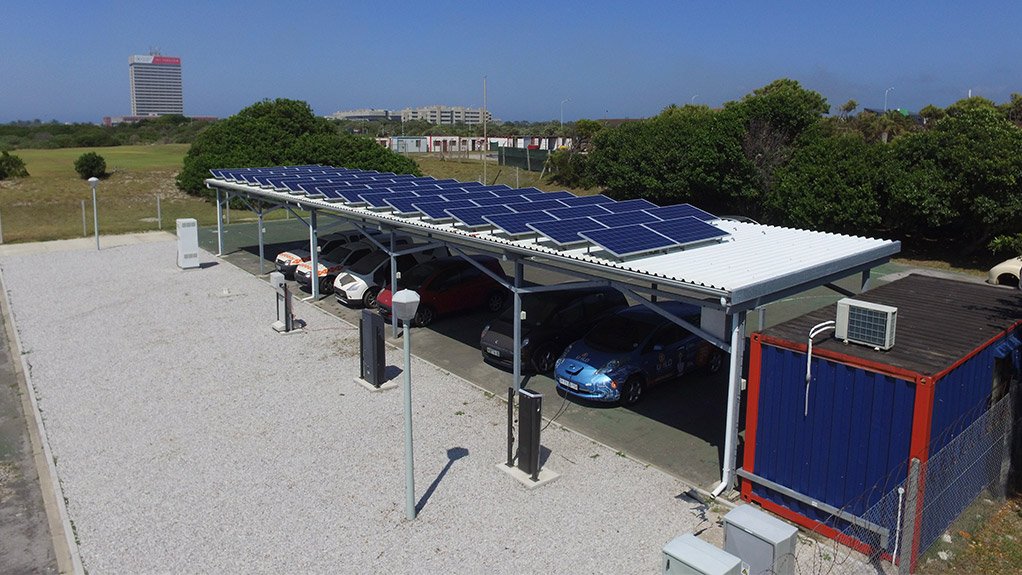
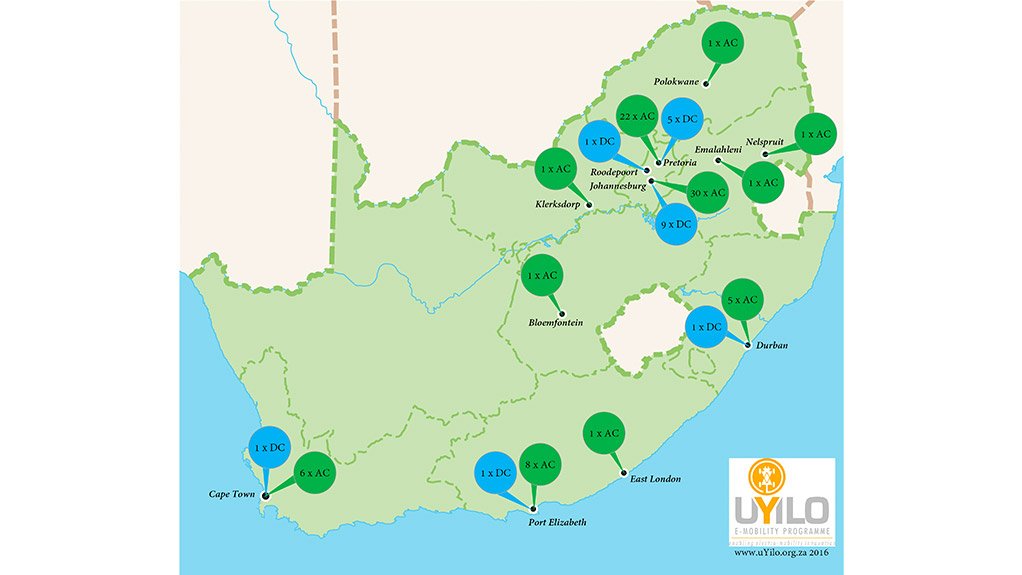
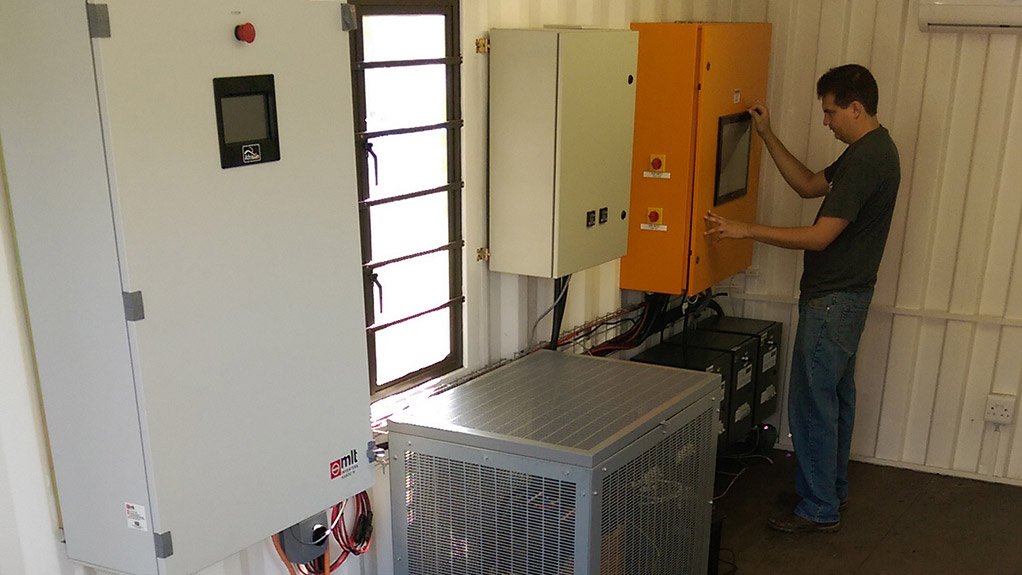
'GREEN' INFRASTRUCTURE The uYilo smart grid ecosystem at Nelson Mandela Metropolitan University, in Port Elizabeth
NATIONAL FOOTPRINT Electric vehicle charging stations in South Africa
BACKROOM The uYilo energy management system, with project engineer Xander Theron in the background
After a year of development, a smart grid pilot project for the energy efficient charging of electric vehicles (EVs) through battery storage and energy management across a network of charging stations has proved successful.
Innovated by the uYilo e-Mobility Technology Innovation Programme – a national programme hosted by Nelson Mandela Metropolitan University (NMMU), in Port Elizabeth – the project paves the way for a new era of green transport and smart cities.
Project leader and uYilo programme deputy director Hiten Parmar is pleased with the breakthrough: “Charging EVs with optimised management of renewable energy is a groundbreaking achievement for South Africa and globally. We are not aware of anyone else who has achieved this kind of outcome, incorporating demand management and load levelling.”
The uYilo programme, at NMMU’s innovation hub, eNtsa, spans a number of faculties and departments at the university, including engineering, information technology and chemistry. With the software the uYilo team has developed, the green future of energy efficient charging of EVs has become a reality.
Further technology advances will include opportunities to be able to transfer power from the EV into the grid or to power people’s homes through a bidirectional charger. The 100% electric Nissan Leaf available in South Africa currently supports this feature of vehicle-to-grid functionality.
What this means is that, instead of the energy utility having to increase infrastructure for EVs, this system considerably reduces the load on the national grid.
“Petrol and diesel vehicles are the biggest carbon emitters in the transport sector and the major thrust globally is to use renewable energy as far as possible to ensure that EVs are 100% green, powered by renewable-energy sources, and not fossil-fuel-based, carbon-dioxide-emitting sources of electricity,” says Parmar.
“Within the next five years, we are likely to see strict policies coming into effect around energy efficiency and green transport in South Africa. “It’s already happening globally. Japan already has more EV charging stations than fuel stations.”
According to a recent study by Japanese vehicle manufacturer Nissan, there are now more than 40 000 charging ports across the country, compared with fewer than 35 000 fuel stations.
“In the UK, EV charging stations will exceed gas stations by 2020, and the Netherlands is planning to ban the sale of petrol and diesel engines from 2025,” Parmar adds.
A recent study by uYilo states that South Africa currently has 98 EV ‘public’ charging stations across the country, including 77 alternating current (ac) slow chargers, which take three to eight hours to charge a battery, and 18 direct current (dc) fast chargers, which take about 20 minutes. Most of the charging stations are located at Nissan and BMW dealerships nationally, but there are also some at Melrose Arch, in Johannesburg, and the V&A Waterfront, in Cape Town.
A locally manufactured public ac charging system costs about R30 000 per charger installed, while dc charging systems are currently imported and cost about R400 000 per charger installed.
“Through our pilot project, we’ve demonstrated that energy efficiency applied to solar-powered EV stations can be developed at scale because we have solved energy storage through reusing the lithium-ion battery pack from an EV for stationary storage. The energy management system prioritises each charging event, based on renewable and stored energy available, and incorporates a time-of-use feature to manage peak and off-peak charging. In this way, EVs can be sustainably charged 24/7,”
says Parmar.NMMU’s uYilo programme is accredited by the South African National Accreditation System for lead-acid battery testing and will imminently expand on this to become the only facility in South Africa to provide certified lithium-ion battery testing.
Recharging an EV in South Africa currently costs R30 to R40 for every 130 km to 150 km travelled. The two 100% EVs currently on the South African market are the Nissan Leaf and the BMW i3, both of which can drive for up to 200 km. The BMW i3 REX can drive for about 300 km, with 130 km of the total distance on its 9 ℓ range extender petrol engine.
BMW South Africa’s Alan Boyd says that, since the March 2015 launch of the group’s fully electric vehicles, it has sold 142 in South Africa and 60 000 worldwide.
Boyd says BMW expects to sell more when the economy improves and when the number of EV charging stations increases as more are installed for easy access at companies, business estates, shopping centres and apartment complexes. Many developers are already including EV charging facilities in their new buildings.
EV vehicle batteries have a life of eight to ten years, at which point they drop to between 50% and 60% capacity and can then be recycled or repurposed for lower-energy needs, such as lighting, and used for several more years. They are then submitted to recycling processes that can extract core materials, which can be put back into the battery manufacturing process.
“We are confident that this is an attractive business opportunity for a local or international commercial role-player to partner with us in taking it to mass commercialisation. We have developed the intellectual property for this energy management system, and the added advantage is that the equipment we have used to create this facility is 90% South African technology," says Palmar.
"To date, the South African roll-out of EV charging infrastructure has been primarily driven by the original-equipment manufacturers and the private sector. In 2015, BMW South Afica and Nissan South Africa signed a memorandum of understanding stipulating their collaborative efforts in the national implementation of EV charging infrastructure.
“We are ready to join hands with suitable partners to exponentially expand and revolutionise the current e-mobility landscape in South Africa and internationally,” says Parmar.
Comments
Press Office
Announcements
What's On
Subscribe to improve your user experience...
Option 1 (equivalent of R125 a month):
Receive a weekly copy of Creamer Media's Engineering News & Mining Weekly magazine
(print copy for those in South Africa and e-magazine for those outside of South Africa)
Receive daily email newsletters
Access to full search results
Access archive of magazine back copies
Access to Projects in Progress
Access to ONE Research Report of your choice in PDF format
Option 2 (equivalent of R375 a month):
All benefits from Option 1
PLUS
Access to Creamer Media's Research Channel Africa for ALL Research Reports, in PDF format, on various industrial and mining sectors
including Electricity; Water; Energy Transition; Hydrogen; Roads, Rail and Ports; Coal; Gold; Platinum; Battery Metals; etc.
Already a subscriber?
Forgotten your password?
Receive weekly copy of Creamer Media's Engineering News & Mining Weekly magazine (print copy for those in South Africa and e-magazine for those outside of South Africa)
➕
Recieve daily email newsletters
➕
Access to full search results
➕
Access archive of magazine back copies
➕
Access to Projects in Progress
➕
Access to ONE Research Report of your choice in PDF format
RESEARCH CHANNEL AFRICA
R4500 (equivalent of R375 a month)
SUBSCRIBEAll benefits from Option 1
➕
Access to Creamer Media's Research Channel Africa for ALL Research Reports on various industrial and mining sectors, in PDF format, including on:
Electricity
➕
Water
➕
Energy Transition
➕
Hydrogen
➕
Roads, Rail and Ports
➕
Coal
➕
Gold
➕
Platinum
➕
Battery Metals
➕
etc.
Receive all benefits from Option 1 or Option 2 delivered to numerous people at your company
➕
Multiple User names and Passwords for simultaneous log-ins
➕
Intranet integration access to all in your organisation













